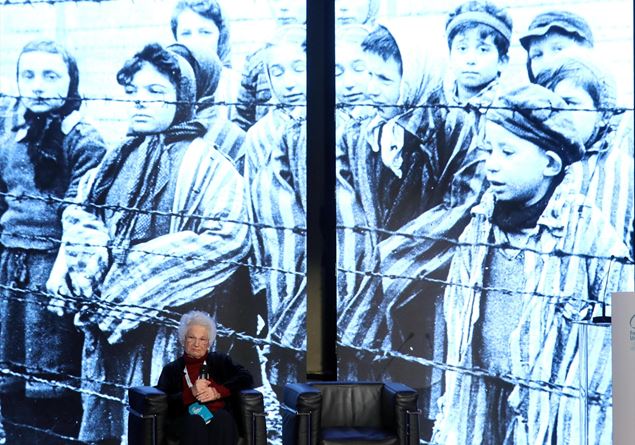Nowadays, for young people to enter the world of work it is not at all simple. To this is added the scarce ability of schools to guarantee their students a structured and effective orientation path. AND So the children often decide their school and working future or independently, or relying on the Council or even the imposition of the parentsthen going to choose roads not suitable for them. Those who try to fight this trend is the Giuseppini National Authority of Murialdo – the entity founded by the religious congregation of the Giuseppini del Murialdo – which deals with organizing an adequate training activity, following the professional education and training courses (IEFP) intended for young people who want to choose an alternative path to high school and thus allowing them to obtain a professional qualification immediately available in the labor market.
On January 30 in Rome, in the auditorium of the National Institute for the analysis of public policies, the analysis of the results of the national and future national investigation was presented, cultivating hopes through work “, developed by Engim a early 2024. The investigation involved over 4000 young teenagers both belonging to the institution, and from the State Higher Institutes. The “young, work and future” seminar intervened several leaders of Engim and Inappo, as well as the presidents of the Terzjus Foundation and of the Italian organizations of international cooperation and solidarity associations.
The seminar opened up with the reflection of Loriano BigI, General Manager of Inapp, who recalled the words written on human and working activities by Pope Francis in the post-Synodal apostolic exhortation Christus Vivit: “”When one discovers that God calls him to something, which is done for this – it can be nursing, carpentry, communication, engineering, teaching, art or any other job – then it will be able to make it blossomed His best abilities of sacrifice, generosity and dedication. Knowing that things are not done so much to do them, but with a meaning, it means that these activities offer their heart a special experience of fullness “. With these words the Holy Father It makes us reflect on how to associate work with creative activity gives a totalizing sense to the human being – explained Bigi – we must work on an analysis approach linked to the young man and his values ». Young people must therefore be put to the center, as he also pointed out Marco MuzzarelliNational Director Engim: «Our research started from a need to feel not so much young between 18 and 34 years old, but above all teenagers, very young boys often unheeded by adults. Adults who intervene the needs of teenagers badly and act on their behalf, without first realizing the real needs. From this study we aim to create an integrated permanent observatory. We are called first to listen and then to act, not vice versa».
Subsequently we moved on to the round table “Orientation, training and the place of work” moderated by Romano Benini and useful to enter more in the concrete of the investigation carried out. Professor Daniele Mariniauthor and creator of the research, explained some research results in detail starting from the problem of youth dis-horient. «Professional training bodies collect a disorientation of the younger generations in front of the school courses to be faced after middle school. Among the parenting figures today the mother to direct the children more (25.6% responses of ENGIM members and 27.3% responses of children of the Higher Institutes). In the past, on the other hand, the fathers were more, which are now quite absent in this decision -making process (10.8% Engim and 9.4% other institutes) – Marini highlighted – but the survey also shows us how the boys choose their way above all Without consulting anyone (26% Engim and 30% other institutes). So the research underlines that, in addition to the family and to themselves, students have no other orientators ». Marini Eco Massimiliano Franceschetti from Inapp Eco: “It affects the fact that 30% of young people respond they have no reference points in orientation. Today’s guys have a general desire for relationality, but on orientation are alone and this is a problem ».
Another reflection concerned, however, the problem of rejection, which appears to be the most decisive factor in the re-organization of a school path. As many as 67% of the rejected, before joining Engim, passed first from a second institute. Conversely, 83% of the non -rejected decided to attend an ENGIM course as the first experience after middle school. By moving the analysis to the ideal professions and places, major differences have arisen between teenagers linked to Engim and Young people between 18 and 34 years old. The latter prefer to work in a public office (23%) or from home (17.5%)while the children of Engim would prefer to be hired in a small shop (33%) or in a small artisan company (18.5%).
Ultimately how we also read in the conclusion of the relationship: “In the resulting snapshot, therefore, trust in the future are clearly seen clearly and, in particular, optimism in the working future, while the values of Reference: most of the young interviewees are neither “traditionalist” (which refers to the values of the family, work and faith), nor “committed” (culturally or politically) and not even “playful” (oriented towards free time e to friends). Today’s young people are above all “relativists” So everything is relatively important. Iefp students look to the future with a higher hope than the peers attending other schools and have already well -defined dreams in the drawer. It is plausible to hypothesize that, on the one hand, there is an element of redemption that moves in this direction, the possibility of demonstrating that it is worth. On the other, It is the proximity to work, the learning in a working context that makes the training course more attractive and less stressful. The result is a new awareness for training bodies, and for the world of adults in general: the younger generations must be accompanied in the work transition not only from a professional point of view, but also in preserving the ideal size of work and its value, favoring the abandonment of the “relativist” approach that characterizes young people today “.









